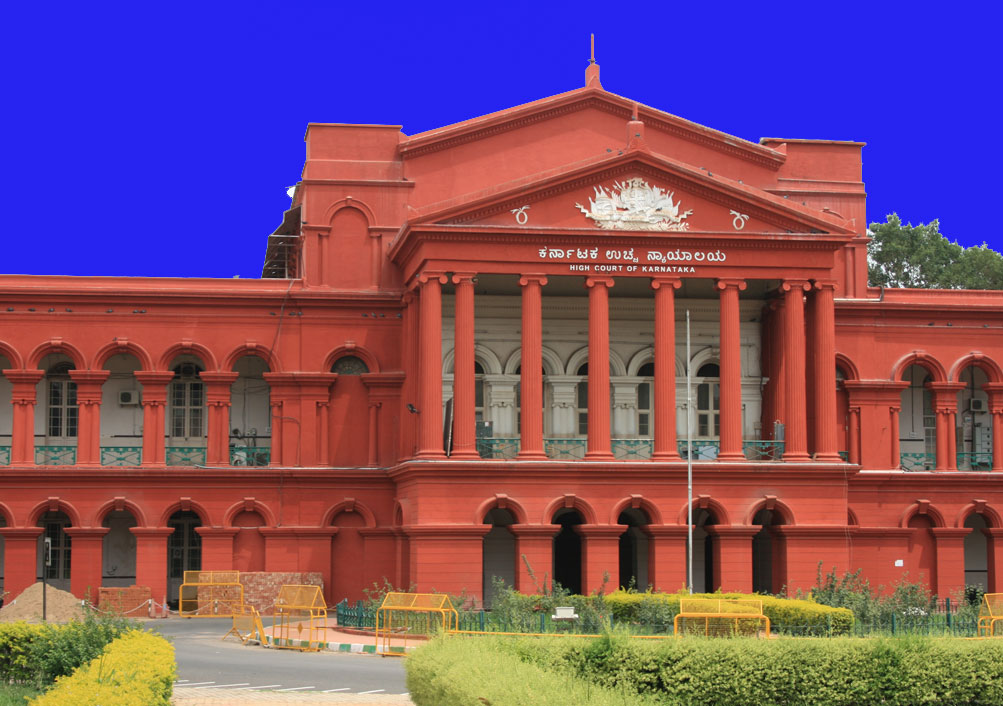Quasi-judicial powers can’t be bartered away contrary to duties & obligations imposed upon Commissioner by statute: Karnataka HC

Read order: Chitrakala vs. State of Karnataka &Ors
LE Staff
Bengaluru, August 12, 2021: The Karnataka High Court has recently ruled that Section 66 of the Karnataka Municipal Act, 1976, can only be in reference to a delegation of ordinary powers, duties and functions, and not quasi-judicial powers of the Commissioner.
A Bench of Justice M. Nagaprasanna observed that quasi-judicial powers will have to be exercised only by such officer who is empowered to exercise them and not by any other authority.
“Manifold powers, duties and obligations are cast upon the Commissioner in terms of the Act, a few of them are quasi judicial in nature as the Commissioner is empowered to adjudicate upon the rights of the parties. Adjudication upon the rights of the parties cannot but be a power which is quasi judicial in nature. Therefore, quasi judicial power will have to be exercised only by such officer who is empowered to exercise and not by any other authority,” observed Justice Nagaprasanna.
These observations came pursuant to a petition challenging an order passed by the BBMP (Bruhat Bengaluru Mahanagara Palike) Commissioner, declining to accept the claim of the petitioner and directing that the activity of the petitioner performed in her residential premises cannot be allowed to continue.
The High Court had disposed of the petition with a direction to the BBMP to determine whether the activity conducted by the petitioner in her premises was permissible in terms of the notification dated March 20, 2015.
After the inspection of the premises of the petitioner by the Head of the Legal Cell, it was determined that the activities in the building in question which were Data Entry Operations, Data Research in Software and Financial Consultancy, could not be allowed to be continued, in view of the Government Notification.
Later on, the Commissioner passed an order declining to permit the activity that the petitioner was conducting in her residential premises.
The High Court found that proceedings pursuant to its direction were admittedly initiated and heard by the Head of Legal Cell and the Commissioner who did not hear the grievance or the matter, as directed by the High Court.
Therefore, the Court opined that this is a case where the Commissioner who did not hear the matter, decided it. It would fall foul of the rudimentary principle of ‘he who decides must hear’, added the Court.
The rule “the one who decides must hear” declared by the Constitution Bench in Gullapalli Nageswara Rao & Others v. Andhra Pradesh State Road Transport Corporation & Another, derives support from a famous case decided by the Supreme Court of United States in Morgan v. United States [(1936) 298 U.S. 468], wherein that Court invalidated a price-fixing order of Secretary of Agriculture merely on the ground that the Secretary himself had not personally heard or read any of the evidence or considered the arguments submitted but had decided the matter solely on the advice of his officials in consultations at which the objectors were not present, added the Bench.
Therefore, reiterating that the justification of the BBMP would not hold water as indisputably the Commissioner had never heard the parties, the High Court remitted the matter back to the hands of the Commissioner to hear the parties as directed by the High Court and pass appropriate orders in accordance with law.
The High Court, however, made it clear that setting aside of the order of the Commissioner would not however mean that the petitioner can restore the activity in the premises she was performing earlier.
Sign up for our weekly newsletter to stay up to date on our product, events featured blog, special offer and all of the exciting things that take place here at Legitquest.




Add a Comment